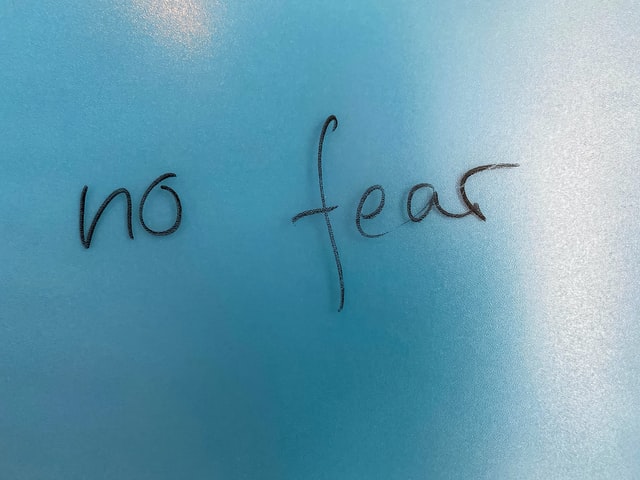Confusing Wisdom With Fear

Welcome to the last part of That’s Wisdom!
Series Review. Ready?
- Part 1
- We talked about how wisdom starts when we fear the Lord.
- Part 2: Discerning the voice of wisdom
- We defined wisdom in the Hebrew and Greek Lexicon, differentiated between human wisdom and Godly wisdom, the three different individuals to watch out for, and the voice of wisdom.
- Part 3: Wisdom based on scripture, but not in scripture
- We discussed what causes people to miss what wisdom is saying.
- Questions to ask ourselves when trying to discern the source of the wisdom we are receiving
- And what to do if there is no scripture on the subject.
- Part 4: Observational wisdom
- We dived deep into wisdom’s splatter and the 16 things that wisdom has, offers, or knows how to get
- The definition of common sense, foolishness, wisdom,
- And the things that negatively affect common sense.
Today we will discuss how people tend to confuse wisdom with fear. Continue to read more to know what we mean.
The purpose for wisdom
One of the poetic books we have been spending a lot of time in during this series has been Proverbs. So, it just makes sense if we continue to use it, right? Let’s dig into Proverbs 1:1-4 (NLT)
“1) these are the proverbs of Solomon, David’s son, king of Israel. 2) Their purpose is to teach people wisdom and discipline, to help them understand the insights of the wise. 3) their purpose is to teach people to live disciplined and successful lives, to help them do what is right, just, and fair. 4) These proverbs will give insight to the simple, knowledge and discernment to the young.”
God makes it very clear why He gave us this specific book: Proverbs.
- To learn wisdom and discipline.
- To understand the thinking of the wise (Proverbs 4:7)
- To learn how to live disciplined and successful lives.
- To give insight to those easily tempted and persuaded.
- To give discernment and knowledge to the young.
- To assist us in doing things rightly, justly, and fairly.
So, let’s talk about our subtitle for today’s series: “confusing wisdom with fear.”
Some of what believers claim is wisdom is just flat-out fear. We translate wisdom as “playing it safe,” and anything with “little to no risk” is best. In other words, whatever has the least amount of risk, sacrifice, yet offers the fastest results, is wisdom. Instead of being honest with our fears, we convince ourselves of being wise. Frequently we choose the “wisdom” that isn’t always best for us above the wisdom that helps to put these personal fears at ease. But remember these two things:
- God has placed some of your greatest blessings on the other side of your greatest fears.
- Fear’s ultimate goal is to control. Even if that’s not what you want, that’s what fear is after.
- 2 Timothy 1:7 tells us that fear is not just an emotion but also a spirit, and it does not come from God. Since it does not come from God, it does not have God’s nature.
The nature of fear is to:
- Control
- Isolate
- Paralyze
- Freese people in time
But love is the exact opposite:
- Liberates
- Connects
- Breakthrough barriers, but it honors boundaries
- Boundaries are there to protect, but barriers are there to control.
So how do we know when it’s wisdom or fear? Great question. Wisdom is not reckless, but wisdom can seem risky at times. Wisdom is not information; it’s the ability to use the information that you have. So when God gives us wisdom (based on His omniscience), what He’s asking us to do seems risky to us, but that’s only because we’re working with limited information. It’s your history with God that gives you confidence and peace about the future. The more history you have with God, the more experience. But experience isn’t the best teacher. Evaluated experience is. Experience only benefits us if we’re able to turn our experiences into insight. Wisdom from our past experiences is not guaranteed unless we take the time to look at what we learned from those experiences.
Things to take into consideration when making a significant decision
- Move with wisdom’s current, not against it.
- If anytime you want to make a significant decision, you want to make sure that your life is pointing in the direction of wisdom and that you are flowing with wisdom’s current as mentioned in Isaiah 48:17,18
- Be prayerful
- Prayer life needs to be built on scripture.
- People have a tenancy to prioritize personal prophecies and personal experiences over biblical truth, which is dangerous.
- As mentioned in John 16:13 (AMPC), the Holy Spirit is the Spirit of Truth. So when the Holy Spirit speaks to you, listen to what’s in your heart through your knowledge of scripture to ensure your personal prophecies or experiences align with truth.
- Assess the cost
- Luke 14:28-30 talks about assessing the cost to build. Remember, common sense doesn’t deny the obvious and the unnecessary when evaluating cost.
- Check your blind spots.
- The wisdom of God is manifold, so we need to check our blind spots. How? We can do this through relationships and counselors, as mentioned in Proverbs.
- Are the odds stacked against you?
- Sometimes you will need to pray some more and sit for a while to make sure you are not missing something, or you may be trying to make something happen before it’s time.
- Letting something sit for a while allows for time to gain some perspective that may not have been there first.
- Prove it
- Some things we will never know if they are from God or not unless we prove them. A lot of believers skip this step.
- Some things must go through the “investigative process” to confirm their validity.
Recommended Posts

Respecting The Holy Spirit
03/25/2021

Responding to the Holy Spirit
03/23/2021

Recognizing the Work of the Holy Spirit
03/15/2021
